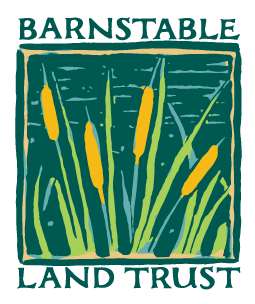BLT Says Farewell to Volunteer Intern Andrew
This week, we say goodbye to our volunteer intern Andrew Nober. Andrew has spent the last two months supporting our Land Stewardship work, both in the field with Kelly, as well as remotely. Though the experience has been different than initially planned, Andrew has been able to support us in multiple projects throughout the summer while also learning a lot himself!
Andrew lives in Fort Worth, Texas as a rising high school senior, but has summered in Barnstable most of his life. Following years of seeing BLT property signs throughout Barnstable, Andrew reached out to us in February, asking if there was an opportunity to help out over the summer. He sought a hands-on experience but also wanted to learn as much as he could about what we do at BLT to protect land and connect with our community. It became clear in March that the summer may not look the same as initially planned, but Andrew was flexible to whatever the conditions of the internship may be in our new world.
With physical distancing, tool cleaning, driving separate vehicles, and other precautions in place, Andrew was able to help us continue our land stewardship work this summer, and operate remotely from home on other projects. Andrew has helped us with trail maintenance, invasive plant management, volunteer project leadership, and other miscellaneous stewardship tasks as they arise. From home, Andrew has helped us start building training materials for stewardship volunteers, assisted in our navigation with Zoom for webinars and meetings, and put together a self-guided mindfulness walk that is coming soon!
Some remarks from Andrew reflecting on his experience:
“My goal for the summer was to learn what is actually behind calling land ‘conserved’ or ‘protected’. Land stewardship is, as I have learned, a very active process. As easy as it would be to acquire a plot of land, stick some signs in the ground, and call it good, that is not the case.
The first thing I came to realize was that progress is measured in months and years, not days and weeks. Human interference has degraded many areas over the course of many years, and it takes a similar amount of time to restore properties to their natural state. Even removing invasive and non-native species and replacing them with native species is a process that happens over multiple growing seasons. Invasive plant removal is a very time consuming and laborious process due to the fact that many species seem to grow back even with control efforts. This has led to me spending a disproportionate amount of the last 8ish weeks trying to deal with black swallowwort and oriental bittersweet. One consequence of my experience has been that I now can’t go anywhere without noticing how pervasive invasive species are everywhere.
Another thing that struck me was simply how many disparate jobs and skills went into protecting BLT’s land. Knowing what is best for a natural area means having a grasp on ecology, hydrology, botany, trail planning and building, knowing how to use a large variety of hand and power tools, and having an advanced degree in navigating permitting processes. That does not even include all of the non-field work that helps support any conservation effort.
I have done a great deal in my short two months beyond looking official in a high visibility vest. Many of my experiences were things I expected to do, like planning trails, putting up signs, and cleaning up trash. However, I was surprised by the amount of time I spent this summer working with people. I had assumed that I would spend a fair amount of my time mostly in the company of trees, but, as I have learned, the success of BLT in executing its mission relies on positive relationships with the Barnstable community. As important as learning how to care for protected areas, learning why BLT does its work is just as essential. The method to learn this came from a variety of places, from neighbors explaining why they donated a piece of land in their neighborhood to spotting turkeys using BLT land to nest. Through this, I saw the tangible value of protected land.
To sum up my experience, I learned that a lot goes into protecting even a small piece of land. My experience has resoundingly reaffirmed my belief in the importance of conservation work by organizations like BLT.”
Andrew has had a fantastic go-getter attitude from the beginning, and he has demonstrated that anyone can be flexible to continue to get the job done even with extra safety precautions in place. His approach to any job has been ‘someone has to do it’, and he’s been game for anything we’ve run into.
Though his stay has been brief, the work he has done with us will stick around and be built upon to carry us further. Thank you, Andrew, for all of your help and for spending your Cape Cod summer with us!




